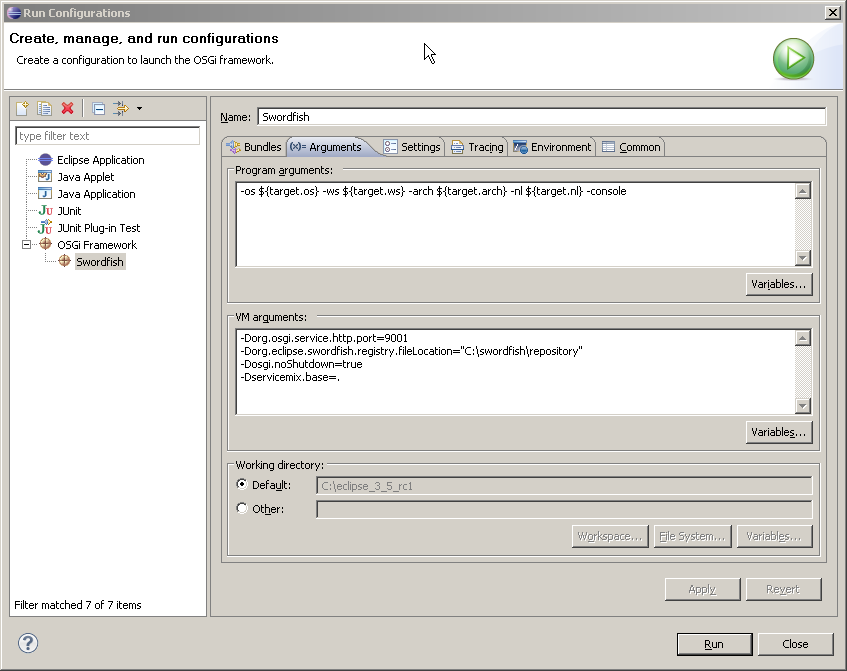Notice: this Wiki will be going read only early in 2024 and edits will no longer be possible. Please see: https://gitlab.eclipse.org/eclipsefdn/helpdesk/-/wikis/Wiki-shutdown-plan for the plan.
Swordfish Documentation: Running Target Platform
Revision as of 06:24, 20 May 2009 by Sergey.dneprovskiy.sopera.de (Talk | contribs)
Running Swordfish Target Platform
This section contains information about setup of the Swordfish Target Platform produced by the headless build.
For more information about Swordfish headless build refer to: Creating a headless build
Prerequisites
The samples below are based on Eclipse Galileo M7 build or later.
Setting up Target Platform
In order to run Swordfish Target Platform it is necessary to perfom the following actions:
- Create a new Target Platform definition by selecting File > New > Other... > Target Definition and add location of built Swordfish plugins to the list of locations presented by definition.
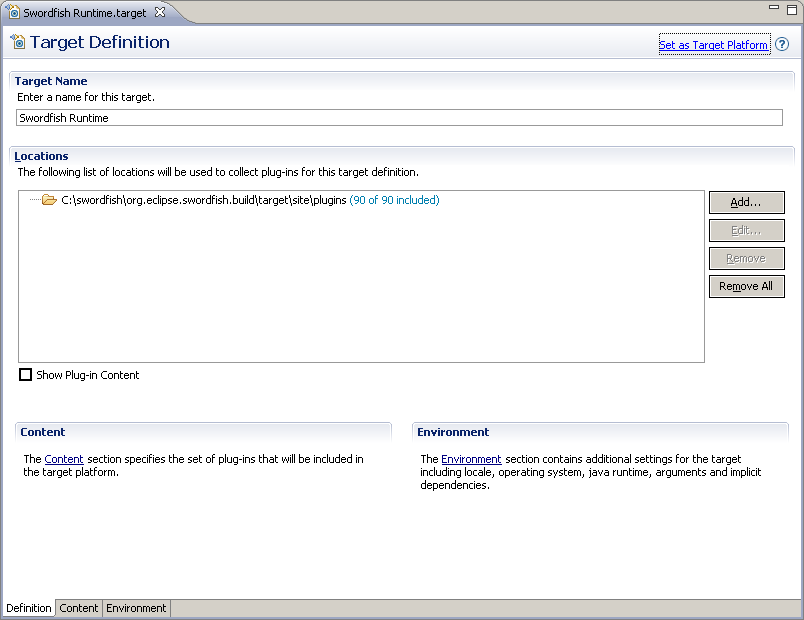
- Add to the platform definition location of Equinox bundles necessary to run target platform.
After the headless build these bundles can be found under the "platform" directory of org.eclipse.swordfish.build project.
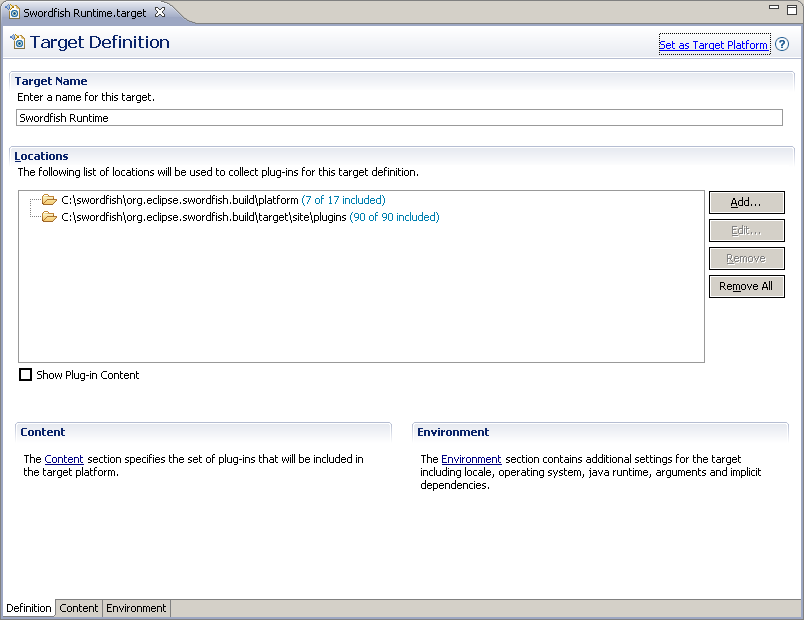
Go to the Content tab and select bundles showed below:
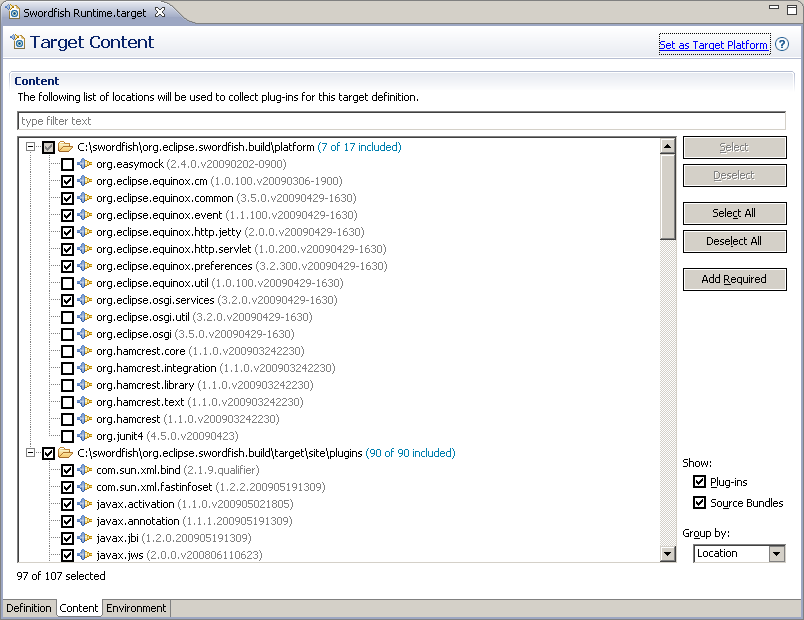
- Configure Eclipse to use Swordfish Target Platform.
To accomplish this step go to the Window > Preferences > Target Platform and set the newly created definition as active target platform.
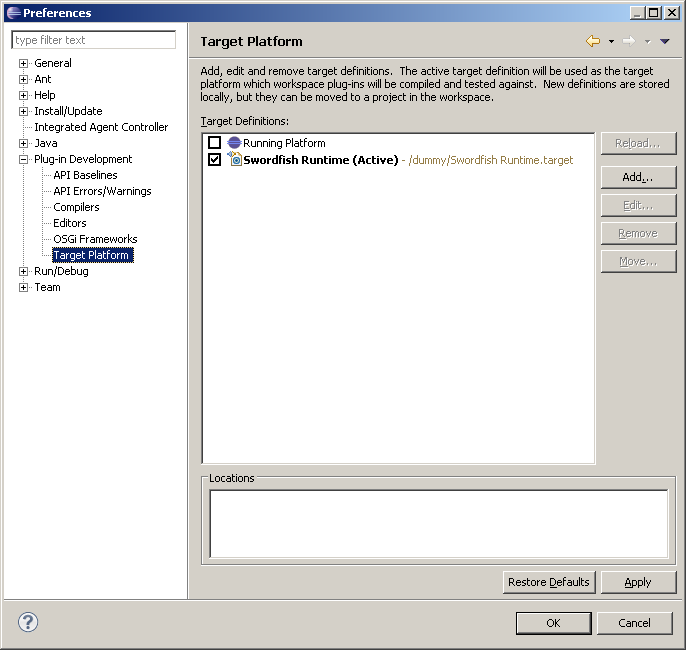
- Go to the Run Configurations... dialog and create a new OSGi configuration based on Swordfish Target Platform.
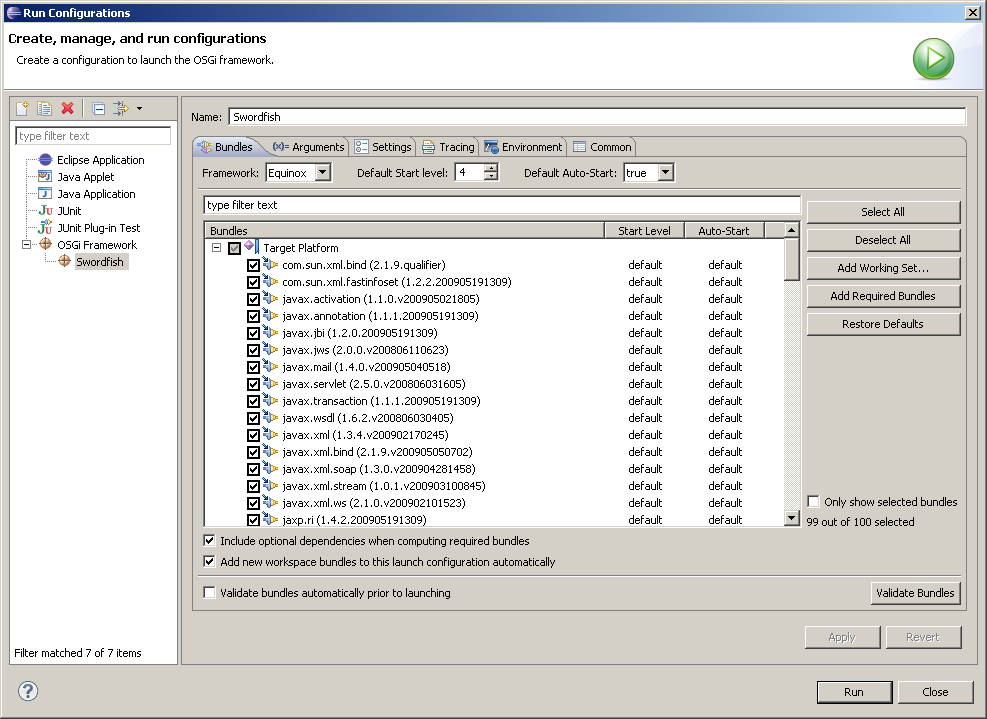
- Switch to the Arguments tab and enter the following VM arguments:
-Dorg.osgi.service.http.port=9001 -Dorg.eclipse.swordfish.registry.fileLocation="C:\swordfish\repository" -Dosgi.noShutdown=true -Dservicemix.base=. -Dorg.osgi.framework.system.packages="com.sun.jimi.core, com.sun.net.ssl, com.sun.net.ssl.internal.ssl, com.sun.org.apache.xalan.internal, com.sun.org.apache.xalan.internal.res, com.sun.org.apache.xalan.internal.xsltc.trax, com.sun.org.apache.xerces.internal.dom, com.sun.org.apache.xerces.internal.jaxp, com.sun.org.apache.xerces.internal.xni, com.sun.org.apache.xml.internal, com.sun.org.apache.xml.internal.utils, com.sun.org.apache.xpath.internal, com.sun.org.apache.xpath.internal.jaxp, com.sun.org.apache.xpath.internal.objects, com.sun.xml.fastinfoset.dom, com.sun.xml.fastinfoset.sax, com.sun.xml.fastinfoset.stax, javax.annotation, javax.annotation.security, javax.crypto, javax.crypto.interfaces, javax.crypto.spec, javax.imageio, javax.imageio.metadata, javax.imageio.stream, javax.jms, javax.management, javax.management.loading, javax.management.modelmbean, javax.management.remote, javax.naming, javax.naming.directory, javax.naming.spi, javax.net, javax.net.ssl, javax.rmi, javax.security.auth, javax.security.auth.callback, javax.security.auth.login, javax.security.auth.spi, javax.security.auth.x500, javax.security.cert, javax.security.sasl, javax.sql, javax.swing, javax.swing.event, javax.xml.datatype, javax.xml.parsers, javax.xml.namespace,javax.xml.transform, javax.xml.transform.dom, javax.xml.transform.sax, javax.xml.transform.stream, javax.xml.validation, javax.xml.xpath, org.jvnet.fastinfoset, org.jvnet.staxex, org.omg.CORBA, org.omg.CosNaming, org.w3c.dom, org.w3c.dom.bootstrap, org.w3c.dom.ls, org.w3c.dom.traversal, org.xml.sax, org.xml.sax.ext, org.xml.sax.helpers, sun.misc, sun.security.provider,javax.activation, org.omg.CORBA.TypeCodePackage, org.omg.CORBA.portable, org.omg.PortableServer, org.omg.PortableServer.POAPackage, javax.swing.border, org.w3c.dom.events, org.w3c.dom.html, org.w3c.dom.ranges"
Note: Value of org.osgi.service.http.port should be set to 9001 - default port the remote resolver uses to connect to the Swordfish registry. For more information refer to: Launching the Service Registry
